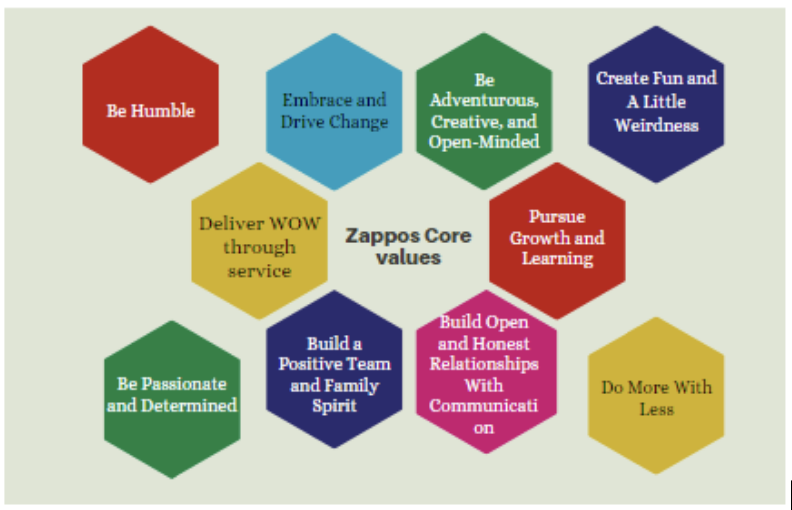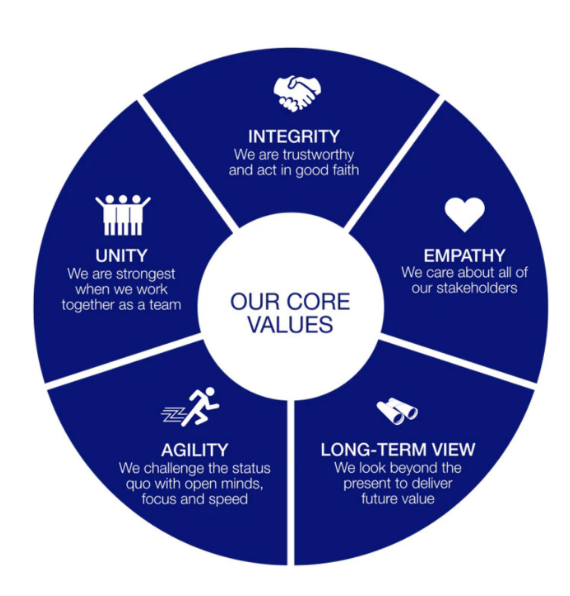I was recently asked why defining core values is important to an organization, and more specifically, how they influence a brand. I would counter, what’s the purpose in existing as an organization if core values aren’t driving it? While profitability and stakeholder responsibilities are what keep the lights on for any company, core values are what support the vision, define company culture and help align an organization and the people who work there.
At insight180, we’re staunch believers in the power of core values. When accurately identified, they are foundational to building the brand. Core values are meant to illustrate why you exist and what you hope to achieve and represent in the world. At the end of the day, the sole purpose of “making a profit” isn’t going to attract or retain people — clients or employees. As an organization, you have to stand for more. Why does your company exist? Your “why” is about your purpose, what moves you… your core values.
When core values are true, lived, and embodied in the culture of a place of business, they will be apparent in what you do and how you do it, and will help differentiate your team and company within your industry. Read on for a better understanding of the “what” and “why” of core values – and a fun exercise you can do to better identify yours.
What are core values?
Where brand personality traits represent the “human” characteristics of your brand, core values represent the fundamental beliefs that you, as a company, stand for. A directive on how your organization and employees represent themselves to the world.
This quote from best-selling author and inspirational speaker Simon Sinek sums up the purpose and responsibility of core values quite simply:
“Values are verbs, not nouns. In order to build the culture we envision, we have to enact our values in how we show up every single day. On both the positive and the negative side, ultimately what you value is what you will have.”
Core values are actionable. While you can’t instruct someone to be more “innovative,” you can direct them to “look at the problem from every angle” in order to find a new perspective. You, in turn, can look at defining your core values in the same way. What do you do that sets your company apart from the landscape? What value do you bring to your clients? What does your team specifically do that goes above and beyond every day to promote success?
Why are core values important?
Clearly defined core values serve as the compass that guides your brand story, actions, behaviors, and decision-making process. They help you prioritize the causes you support, determine how you present yourself on social media, and even select the font type you use on your business cards. For example, a company that promotes family-first values and stresses the importance of helping employees manage a healthy work-life balance wouldn’t be open on major holidays or require excessive overtime from workers. If they did require their employees to work on Christmas or expected everyone to put in 50+ hour work weeks, they would be contradicting the “code” they claim to live by. And, in time, would be exposed for not practicing what they preach.
A way of being.
While core values can be aspirational to what you’re working toward as an organization, they are far more effective when they reflect a way of being. You can be actively working toward goals that make your organization better, but you can’t promote that you’re there if you’re not. If a goal is to have a more inclusive, diverse, and equitable workplace, a social media post about Black Lives Matter is not sufficient. Instead, do the work required to examine privilege and bias in your life, company, and other systems; promote DEI education from within, broaden your own social and professional circles, and reexamine your job requirements and outreach when seeking eligible candidates.
The core values of your company are reflective of the manner in which your company wants to interact with the outside world. To ensure that this is successful, leadership needs to set the example and foster the values throughout the company. There should be no “wiggle room” across the team. Core values are what will inspire trust from clients and confidence in employees about the job that they’re doing.
Finally, defining memorable core values for your company is a great way to set yourself apart from the competition and attract the right customers and employees for your brand. When you speak your truth as an organization, it undoubtedly speaks to others.
When you speak your truth as an organization, it undoubtedly speaks to others.
Now what?
Not sure where to start defining your core values? Try thinking about a time in your work when you were in a “flow,” feeling your best, strong, and at ease. Jot down those situations or moments. Think about the action you were taking at the time.
For me it was:
When I was creating a logo for a client…
When I was educating leaders about branding…
I was inspiring an audience by emceeing an event…
I was collaborating with and guiding a group of leaders…
I was elevating the language on a client’s website…
Pay attention to any patterns that emerge during those times. Narrow your list down to the actions taken (the bold words above). Those statements – if they are found repeated in your “flow” state – may define your core values: create, educate, inspire, collaborate, guide, elevate.
Here are a few examples of organizational core values that we found inspiring, from some companies you may know:
ZAPPOS

Google refers to their values as ten things we know to be true,* which were originally written when Google was a few years old:
- Focus on the user and all else will follow.
- It’s best to do one thing really, really well.
- Fast is better than slow.
- Democracy on the web works.
- You don’t need to be at your desk to need an answer.
- You can make money without doing evil.
- There’s always more information out there.
- The need for information crosses all borders.
- You can be serious without a suit.
- Great just isn’t good enough.
Google shares a broader explanation of each on their website.
OLYMPUS

If you need help defining the core values of your company, reach out to insight180 to learn more about our brand positioning process.
– Wendy Baird

